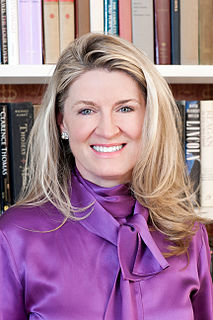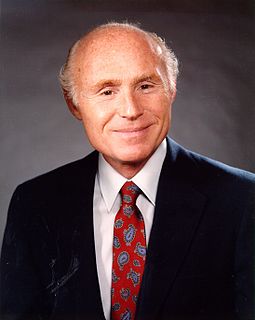A Quote by Orrin Hatch
We must apply a judicial rather than a political standard to the information before us [if choosing a Judge].
Related Quotes
The stranger in ancient Israel did not serve as a judge, although he received all the benefits of living in the land. The political question is this: By what biblical standard is the pagan to be granted the right to bring political sanctions against God's people? We recognize that unbelievers are not to vote in Church elections. Why should they be allowed to vote in civil elections in a covenanted Christian nation? Which judicial standards will they impose? By what other standard than the Bible?
The whole meaning of morality is a rule that we ought to obey whether we like it or not. If so, then the idea of creating a morality we like better is incoherent. Moreover, it would seem that until we had created our new morality, we would have no standard by which to criticize God. Since we have not yet created one, the standard by which we judge Him must be the very standard that He gave us. If it is good enough to judge Him by, then why do we need a new one?
The public discourse on global warming has little in common with the standards of scientific discourse. Rather, it is part of political discourse where comments are made to secure the political base and frighten the opposition rather than to illuminate issues. In political discourse, information is to be 'spun' to reinforce pre-existing beliefs, and to discourage opposition.
On the one hand we want to preserve the integrity of the judicial branch, and we want to talk about judicial independence, and how damaging and dangerous it is when Donald Trump calls out Judge [Gonzalo] Curiel. And at the same time, at the end of the day, judges work for us and we can recall them and we can impeach them.
I don't believe we need a good conservative judge, and I don't believe we need a good liberal judge. I subscribe to the Justice Potter Stewart standard. He was a justice on the Supreme Court of the United States. And he said the mark of a good judge, good justice, is that when you're reading their decision, their opinion, you can't tell if it's written by a man or woman, a liberal or a conservative, a Muslim, a Jew or a Christian. You just know you're reading a good judicial decision.





























